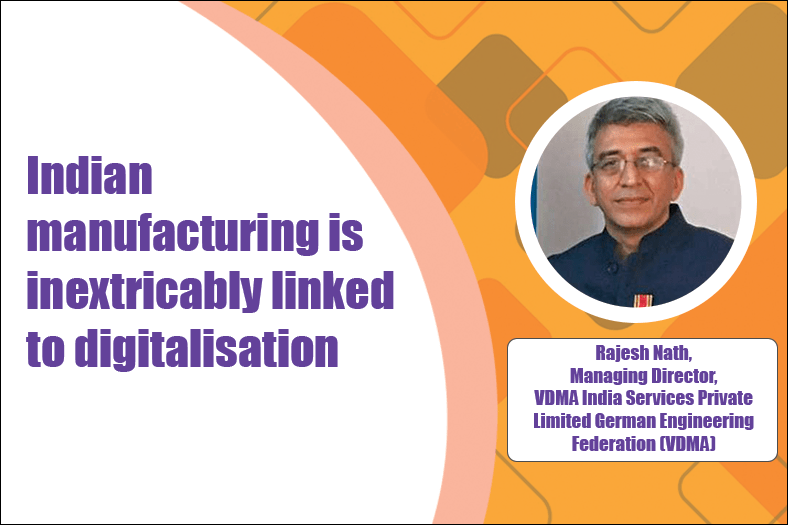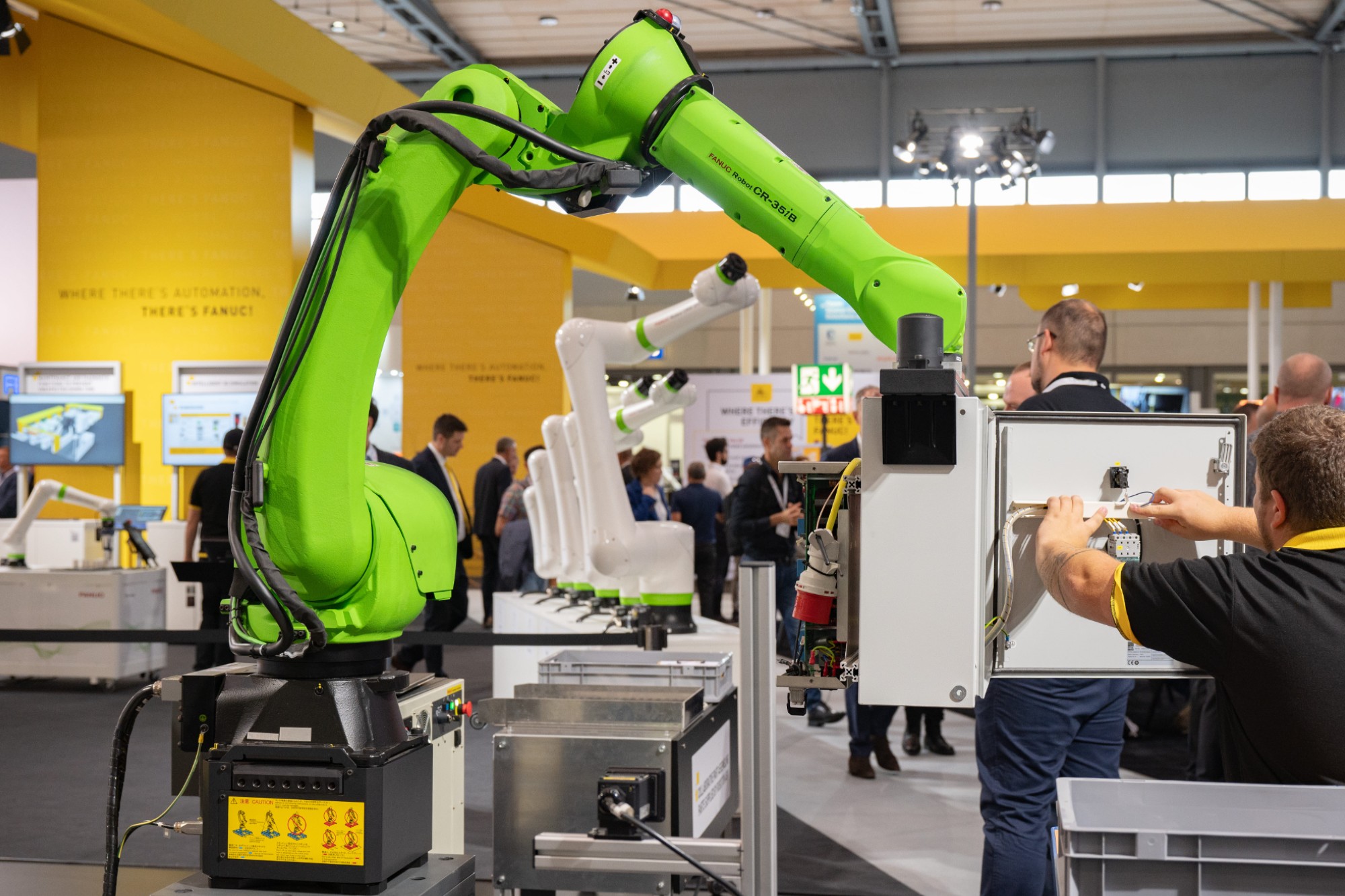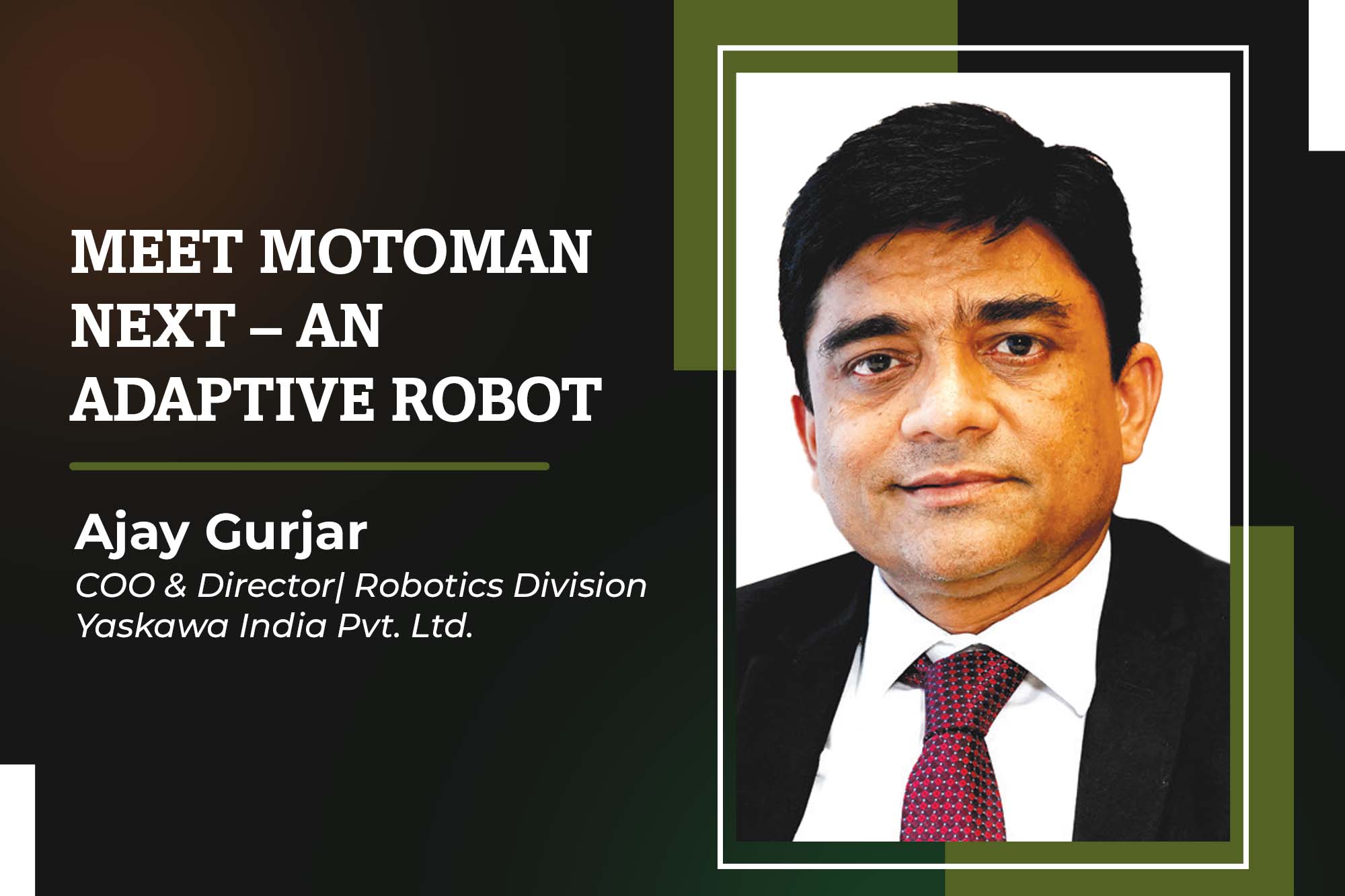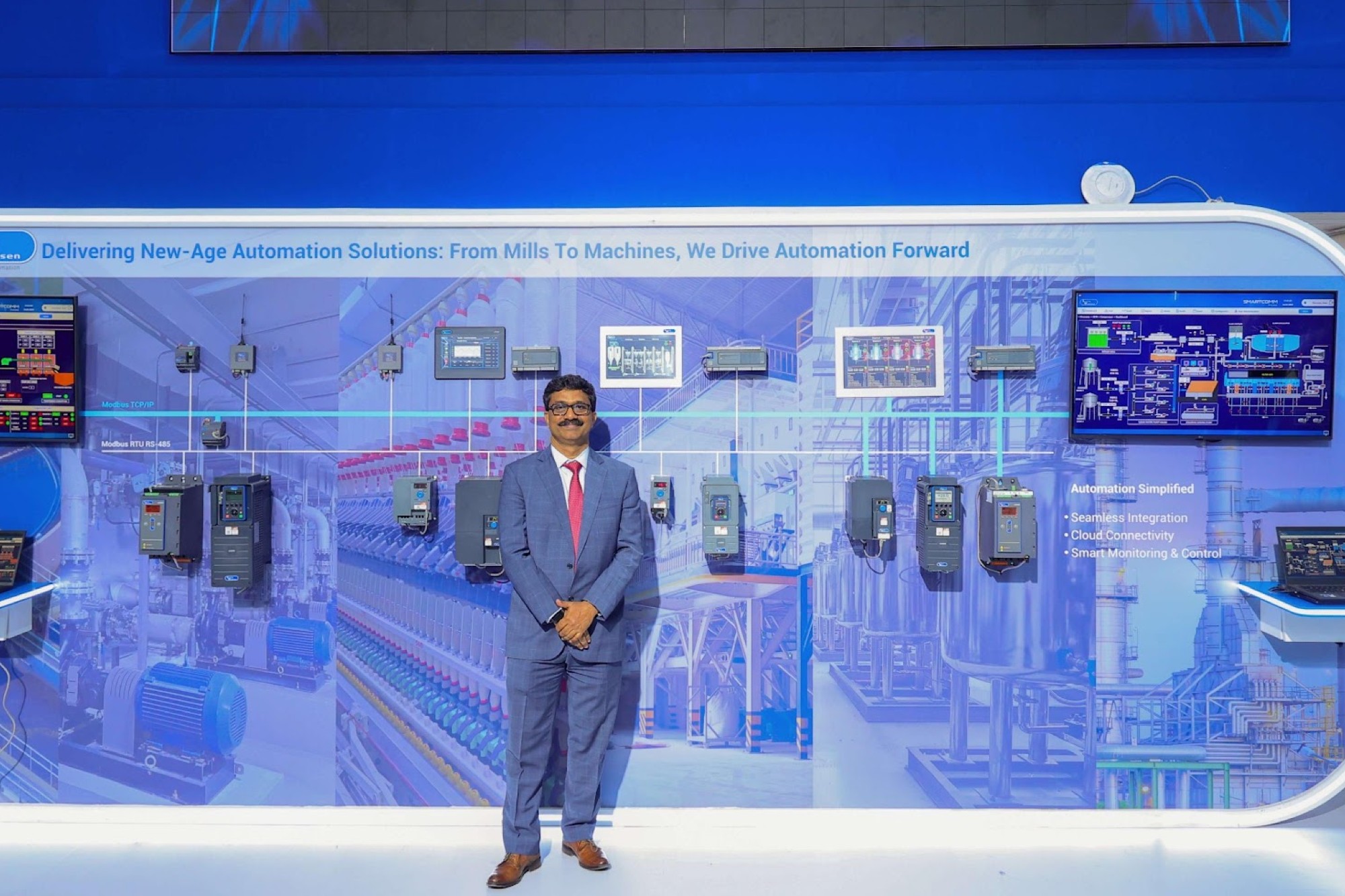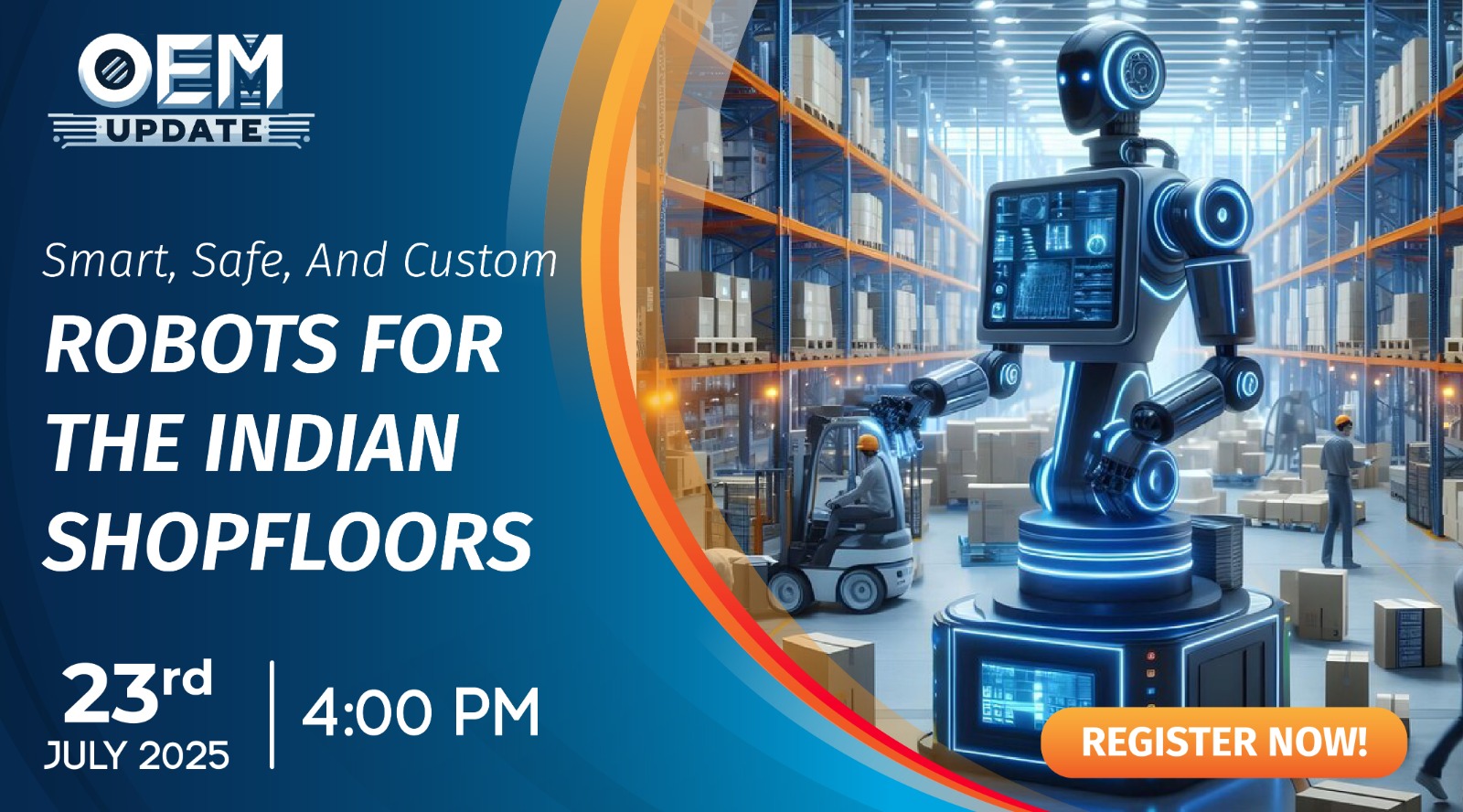Indian manufacturing is inextricably linked to digitalisation
By OEM Update Editorial June 9, 2021 2:31 pm IST
MSMEs can tap the available opportunities to produce multifold results with the simple formula of embracing technology.
Rajesh Nath, Managing Director, VDMA India Services Private Limited German Engineering Federation (VDMA), in an interview with OEM Update, highlight the areas where Industry 4.0 and Industry 5.0 technologies have been transforming the machine tools and manufacturing sector.
Indian industries have embraced Industry 4.0 and its technologies to carve a bright future of Indian machine tools sector. With this level of acceptance, how ready are we to accept Industry 5.0?
Machine tools industry is a critical part of the manufacturing sector. The machine tools industry in India has been serving the need for manufacturing through the production of machine tools, accessories/attachments, subsystems and parts. India stands 12th in production and 8th in the consumption of machine tools in the world.
The spurt in manufacturing due to increased industrialisation is driving the growth for machine tools sector. Due to this, several overseas companies have entered the Indian machine tools sector either by setting up wholly owned subsidiaries or through joint ventures. Today, the Indian machine tool industry has around 1,500 units across the country.
Of late, the Indian government has announced “Mission Atmanirbhar Bharat” to reduce the country’s dependence on imports. Indian industry and particularly the machine tools sector had all along been ready to play its role in reducing the country’s dependence on imports particularly in the manufacturing sector. It is really encouraging to see the government embarking upon ‘Atmanirbhar Bharat’ in addition to ‘Make in India’ programme on account of which local manufacturing will get a lot of encouragement and impetus.
We are still in the midst of Industry 4.0, where manufacturing has taken on the label of “smart” through the integration of the IoT, AI, cyber-physical systems, and Cloud and cognitive computing. The basic principle behind the fourth industrial revolution is that by chaining machines, intelligent devices, and systems, manufacturers are creating smart networks throughout the value chain (from materials to production) that can control each other.
With that being said, it is amazing that technological advancements continue to grow at an incredible speed—so much so that Industry 5.0 can already be seen on the horizon, which according to some tech visionaries will bring an increased human touch back to manufacturing. Therefore, where Industry 4.0 put smart technology at the forefront of manufacturing, Industry 5.0 will be increased collaboration between humans and smart systems. Marrying the two will merge the high-speed accuracy of industrial automation with the cognitive and critical thinking skills of humans.
Industry 5.0 is necessary due to consumers high-demand of individualisation in the products they buy, meaning they prefer a degree of “hands-on” personalisation and customisation with their products. More and more manufacturers are increasing the human component not only for the customisation, but also for increased efficiency on the production line.
With the advent of 3D Printing, AI, robotics, connected data enterprise, what are the major areas where the industry witnessed transformations and business prospects?
By and large, most manufacturing industries are set to benefit from 3D printing technology at the earliest. However, most tangible benefits will be reaped by automotive and large manufacturing companies, due to the significant cost savings associated with digitalising their inventory. Other companies that are likely to benefit earlier include consumer manufacturing, defence equipment manufacturers and healthcare companies, especially those in dental healthcare and prosthetics.
As the speed, reliability, safety and quality of 3D printers improves, and the cost reduces, 3D printers are set to play an important role in this digital transformation of industry. With this rapid improvement, we expect opportunities to arise that will take 3D printing ever closer to mass production. As 3D printing develops, the range of products that can be manufactured is also set to grow. But of course, it is the willingness of innovative manufacturers who choose to embrace the tenets of Industry 4.0 and digitalise their businesses fast that will benefit the most.
How is AI, 3D printing, machine learning and robotics easing the machining processes across the machine tools sector to bridge the technological gap in Indian industries?
What can be the potential future of India’s machine tools with this?As shops look to expand capacity, they are increasingly turning to lights-out machining instead of adding machines, employees or shifts. Utilising overnight and weekend hours to produce parts with no operators’ present, shops are able to get more production out of their existing machines. However, unattended machining can be risky and not advisable — if a machine or cutting tool were to fail with no one around to quickly address the situation, the results could be costly.
In order to make India the focus of major investments, we need to establish India as a global brand, the products manufactured in India should be backed by higher accuracy and sophisticated machines catering to a wide range of Industries. The right technology and correct pricing will be the deciding factor for Indian businesses. Organisations need to encourage R&D activities to cultivate and process the ideas of Machine tool manufacturing.
Although Industry 4.0 is still the foremost revolution on most manufacturers’ minds, it is also important to keep an eye on the future. Technology is constantly advancing, and production must evolve with it to remain competitive. With the increase in demand for quality hands-on custom-made products, manufacturers will undoubtedly benefit from what Industry 5.0 has to offer, and perhaps it will reduce the inherent fear most production workers have concerning being replaced by automation. New skills are necessary, but the collaborative workplace will be beneficial for all in the long term.
How do you see the role of financial and regulatory assistance to leverage these newer technologies and enhance efficiency in the machine tools sector?
As the demand for high-tech and efficient machines in the industry rises, digitalisation of the production process becomes the key to higher productivity, flexibility, and efficiency, as well as simple operability and the possibility of permanent optimisation. While traditional manufacturers use various tools for milling, turning, grinding, and other applications; digitalisation is radically and sustainably changing the production environment and becoming an indispensable part of business. Very soon, it will be the new normal.
With the government and the RBI stressing financial institutions in India to meet the credit demands of the MSMEs, the lenders have been partnering with fintech companies that are bringing best-in-class and globally-followed practices to the country. These partnerships have paved a way primarily for MSMEs to explore ways to meet their credit requirements.
MSMEs no longer need to undergo long banking processes. They can now explore various options by multiple technology-advanced players that help them raise capital via traditional credit companies or banks enabled by technology if they would like, or through an entirely new company in the lending space with nuanced offerings.
As Indian businesses are getting introduced to newer challenges of the global world, they need to be prepared to grab opportunities to expand and partner with others. Inculcating technology in business processes to complete an end-to-end cycle will help Indian companies develop an edge over other worldwide competitors.
With a robust spine of young adults, high acumen, and willingness to adapt to a global world, the country is ripe for a scathing rise in business opportunities — MSMEs can tap this opportunity to produce multifold results with the simple formula of embracing technology.
Cookie Consent
We use cookies to personalize your experience. By continuing to visit this website you agree to our Terms & Conditions, Privacy Policy and Cookie Policy.




